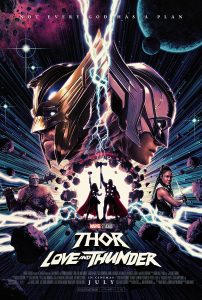 The fourth Thor movie came out in, what, July? We went to see it at the drive-in, and it was good enough in an actiony explosions and rainbosenberg bridges kind of way. Also, like always, I was tired and it was a summer movie, which means starting near sunset for two (and a half, counting previews, etc) hours is a lot later than if we were watching it in, say, February. So I lightly dozed through a lot of it, which caused me to judge what I did see perhaps more harshly than I would have otherwise. This doesn’t matter to you, because I was always going to watch it again for real before writing a review, which not incidentally is why this one is six months late. But it did mean I kept putting it off even though it’s been available to me for multiple months via certain online sources run by mice.
The fourth Thor movie came out in, what, July? We went to see it at the drive-in, and it was good enough in an actiony explosions and rainbosenberg bridges kind of way. Also, like always, I was tired and it was a summer movie, which means starting near sunset for two (and a half, counting previews, etc) hours is a lot later than if we were watching it in, say, February. So I lightly dozed through a lot of it, which caused me to judge what I did see perhaps more harshly than I would have otherwise. This doesn’t matter to you, because I was always going to watch it again for real before writing a review, which not incidentally is why this one is six months late. But it did mean I kept putting it off even though it’s been available to me for multiple months via certain online sources run by mice.
Thor: Love and Thunder has two glaring flaws, the first of which is sort of a spoiler but not especially. So, one of all, he went off with the Guardians of the Galaxy at the end of Endgame. But now he has his own movie. and also, they have their own movie soon. So the possibilities are that these movies a) tie into each other in some way, b) are lopsided because Thor is sharing screen time with a whole team but then isn’t in their movie at all when it comes out later, or c) are wholly unrelated, and the team and thunder god have to be uncoupled. C is bad because it means them going off together in the first place was pointless and poorly thought out, with no planning. You can guess which one happened, I trust.
Two of all, the movie itself is… I am about to say it’s pointless, which is only true insofar as the context of the way the Marvel Cinematic Universe has previously worked makes it true. It adds nothing to an overarching storyline being told in its Phase or in its collection of phases. Or if it does, what it is adding is entirely opaque. And what occurs to me is that neither of these is a flaw of the movie itself. It is a flaw in how Marvel and apparently Kevin Feige are meandering aimlessly from one plot to the next, with practically no connective tissue. This doesn’t bother me in the comics because the comics started out that way and, despite crossing over with each other frequently, rarely have giant events. Whereas the MCU was one enormous event from start to end[game]. But they can’t come out and say, hey, we’re going full comics, just making these for funsies with occasional big events (but of course regular crossovers), as it would piss the public off, after what they got out of the first ten years. But they also can’t not say it, because then it looks like this, with people hating on most of your movies because they don’t make overall sense. Which, of course they don’t, if you didn’t write in any overall sense to be made!
Either that, or Feige got infected by whatever happened when Disney contracted the third Star Wars trilogy without a plan.
Anyway, all of that to say: this was a good movie, as long as you did not have grand scheme expectations. Waititi has the same sense of whimsical fun that made Ragnarok work so well, and if it was maybe amped up a little higher, that worked for me. (I understand why it wouldn’t have worked for everyone.) Hemsworth is having the time of his life, clearly. Various callsback in miniature scattered throughout gave me exactly what I’m also getting from reading all of the comics, and in summation, I’m not tired of what they’re doing yet.
But I do wish they were more certain of what that is, or else that they’d communicate it clearly if they are. The movies are good on a case by case basis, but the overall look is just not very good, you know?
Oh, plot thing, if you need it: a bro with a religious axe to grind gets a magic god-killing sword and starts, er, killing gods. Later, he kidnaps a bunch of Asgardian children, which sends Thor and also Thor (you had to be there) on a quest to stop him from killing those children maybe and still more gods definitely. Also, there are some pretty sweet goats and really a lot of Guns ‘n Roses. And, as you can perhaps envision from the title, a love story.
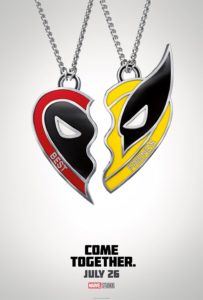 On the one hand: you guys! I saw a movie in the theater! On opening night[1]! On the other hand, how does the only Marvel movie this year drop during the two month window when there’s no Alamo Drafthouse accessible to me? Ugh.
On the one hand: you guys! I saw a movie in the theater! On opening night[1]! On the other hand, how does the only Marvel movie this year drop during the two month window when there’s no Alamo Drafthouse accessible to me? Ugh.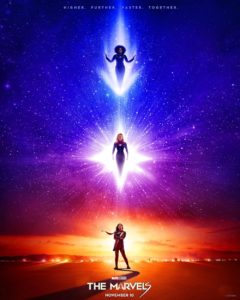
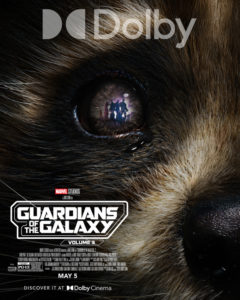
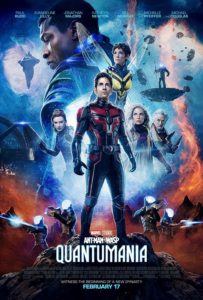
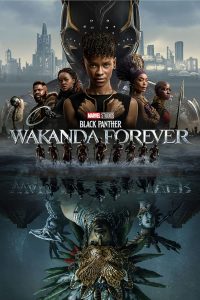

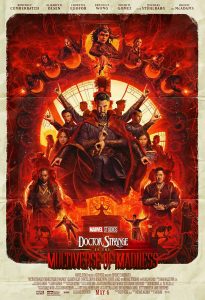
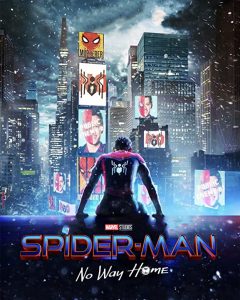 I would be remiss if I did not first point out that in addition to being otherwise fun and sans commercials, the Alamo Drafthouse pre-show is especially useful for movies that require recaps[1], because they can tell you everything you need to know and with mostly a bare minimum of spoilers involved. Although, because reasons, the
I would be remiss if I did not first point out that in addition to being otherwise fun and sans commercials, the Alamo Drafthouse pre-show is especially useful for movies that require recaps[1], because they can tell you everything you need to know and with mostly a bare minimum of spoilers involved. Although, because reasons, the 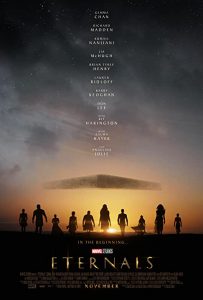 Retroactive continuity is a tool honed to perfection in two art forms[1]: soap operas and superhero comic books. These forms share a lot else in common. They are a) both extremely long-form storytelling where b) the people writing today do not have a plan past the next ten or twelve episodes at the most, c) they both have cliques of characters that mostly hang out together but occasionally cross over with other cliques, and even more rarely all come together for some kind of huge event, and they both d) have dedicated, opinionated fanbases who have stuck around for decades but e) are written so that someone can drop in at practically any moment and be able to catch up.
Retroactive continuity is a tool honed to perfection in two art forms[1]: soap operas and superhero comic books. These forms share a lot else in common. They are a) both extremely long-form storytelling where b) the people writing today do not have a plan past the next ten or twelve episodes at the most, c) they both have cliques of characters that mostly hang out together but occasionally cross over with other cliques, and even more rarely all come together for some kind of huge event, and they both d) have dedicated, opinionated fanbases who have stuck around for decades but e) are written so that someone can drop in at practically any moment and be able to catch up.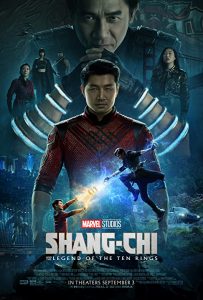 I’m not here for the idea of making links to a bunch of previous movies, but some quick and uncertain mental math tells me that
I’m not here for the idea of making links to a bunch of previous movies, but some quick and uncertain mental math tells me that